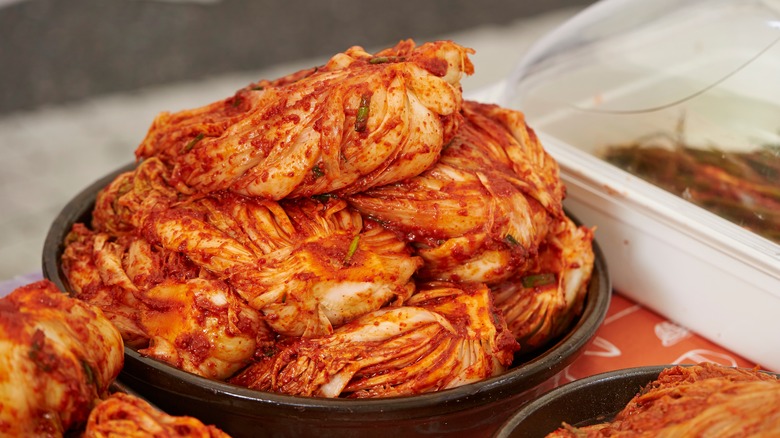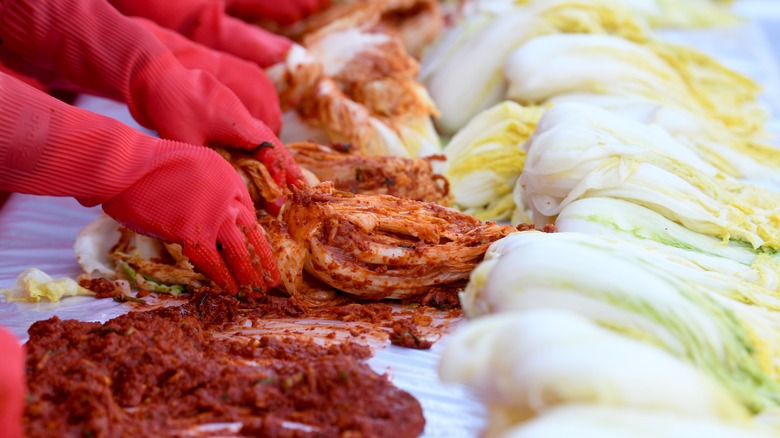How South Korea Is Addressing A Crippling Kimchi Crisis
South Korean households might be feeling a different type of burn this year when they think of kimchi. The Washington Post reports that a remarkably poor cabbage harvest due to above-average temperatures and rainfall has caused the price of the crop, and therefore kimchi, to skyrocket. The publication says that the state-run Korea Agro-Fisheries Trade Corp. reported cabbage prices at an average of $7.81 this month, compared to the annual average of $4.17.
According to The Guardian, kimchi is an everyday sight at South Korean dinner tables that can be used in a countless number of recipes at nearly every meal. The source says that Koreans consume roughly 2 million tons of the spicy, fermented cabbage every year. Reuters notes that the rising prices come at a time of year when many families prepare for the annual tradition known as 'kimjang,' which is the collective preparation of kimchi. It is so vital to the country's identity that the practice was declared a UNESCO Intangible Cultural Heritage in 2013. Kimchi can technically be made from a variety of different ingredients, but by far the most popular form of it is made with Napa cabbages.
The Korean government has now announced plans to step in to help domestic producers to carry on the tradition of making kimchi.
Two new facilities to be built
Reuters reports that the South Korean government has announced plans to build two massive facilities to help address the kimchi crisis. The two storage facilities will be built in the rural counties Goesan and Haenam. They will provide storage space for up to 10,000 tons of cabbage and be equipped to process the cabbages into kimchi. The construction is estimated to cost taxpayers approximately $40 million.
Reuters reports that the government is concerned cheaper, imported kimchi from China will outcompete many of the country's domestic producers. Half of South Korea's kimchi producers were forced to close down permanently or temporarily last year due to recent poor harvests. The Guardian reports that the cabbage harvest was similarly affected by adverse weather conditions in Summer 2020. That year prices rose by 60% and raised similar concerns from manufacturers. These two new facilities, which are expected to be completed by 2025, will hopefully address the industry's concerns and maintain the tradition of making kimchi for decades to come.

